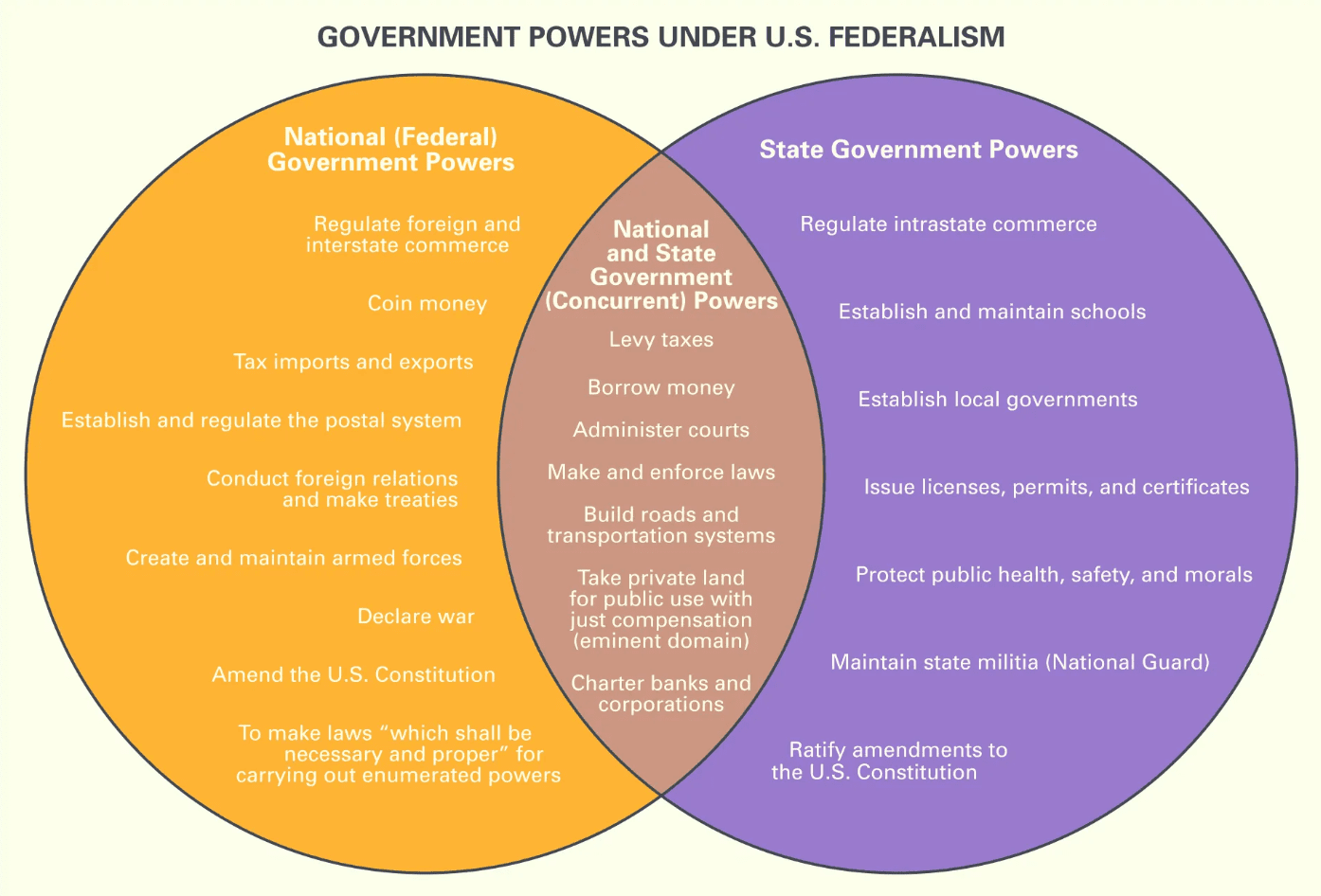
Written by The Likely Voter
April 4, 2024
![]()
Utah was recently ranked No. 1 in the country on the Center for Practical Federalism’s “federalism scorecard.”
According to CPF, “States that perform well on this Scorecard place authority over internal state agency operations, as well as the state’s relationship with federal agencies, in the hands of elected officials rather than unelected administrators.”
What is federalism?
Federalism is a system where two levels of government both have authority to govern a given area.
In the United States, we have something called “dual sovereignty,” meaning we have a nationwide federal government and individual state governments. This system allows for a strong state government while enabling the national government to provide resources like funds and defense.
The history of federalism in America
America’s first governing documents, back when it was still a collection of colonies, were the Articles of Confederation. After the Revolutionary War, it became clear that the articles didn’t give the federal government enough authority for things like enforcing laws and levying taxes.
At the Constitutional Convention of 1787, the 13 Colonies disbanded the Articles and drafted the Constitution. The new Constitution created a more powerful central government and laid out specific authority for state-level governments. This style of government is known as federalism.
What authorities are granted to the federal government versus the state government?
The Venn diagram below serves as a helpful guide to this question.

(Source: Encyclopedia Britannica, Inc./Kenny Chmielewski)
The next time you hear debate regarding a significant policy issue, you can refer to this information as a reminder of the appropriate role of federal and state governments in our country.

For a more in-depth perspective on this article, read our Commentary piece here.
Takeaways: the most important things voters need to know. For civically engaged citizens.

- Utah ranked No. 1 for federalism in a recent scorecard by Center for Practical Federalism.
- Federalism is a form of government in which a single territory is controlled by two levels of government.
- Certain powers are given to the federal versus state governments.
Read More
What’s happening with education choice policy?
There’s movement on a federal scholarship tax credit while more states adopt private school choice policies.
Trump’s tariffs: path to working-class prosperity, or protectionist misstep?
Defenders argue tariffs will restore manufacturing jobs, while critics say they amount to a tax on Americans with little real benefit. Experts from both sides weigh in.
Congress should follow Utah’s lead on protecting kids online with app store law
A new bill to regulate app stores has been introduced in Congress.



